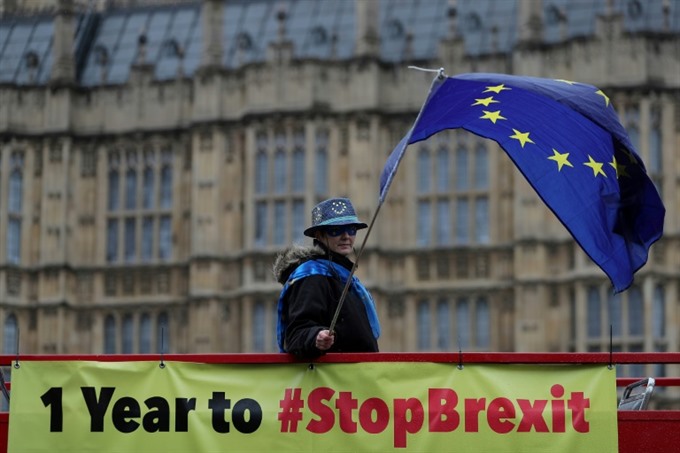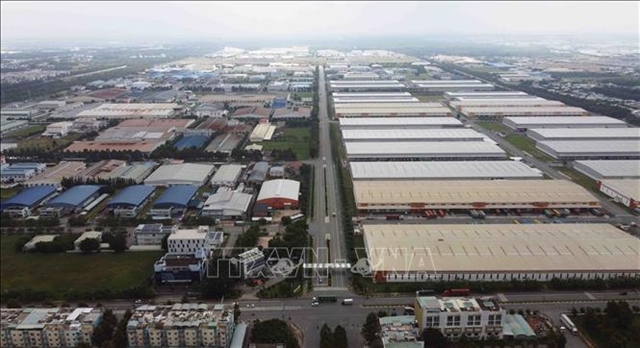

The British government acknowledged on Wednesday it must pay its Brexit divorce bill before securing a new trade deal with the EU, despite previously insisting the cash could be a bargaining chip.
 |
| Anti-Brexit demonstrators hold frequent protests in Britain. — AFP/VNA Photo |
LONDON — The British government acknowledged on Wednesday it must pay its Brexit divorce bill before securing a new trade deal with the EU, despite previously insisting the cash could be a bargaining chip.
Prime Minister Theresa May agreed in December to a financial settlement totalling £35 to £39 billion (US$46.6 to $52.0 billion) that her ministers said depended on agreeing future trade ties.
But under repeated questioning by a committee of MPs, Brexit minister Suella Braverman -- a leading eurosceptic in May’s Conservative party -- was forced to concede this may not be the case.
The Houses of Parliament will vote later this year on the final withdrawal deal struck with Brussels, ahead of Britain’s exit from the EU in March 2019.
The deal will include the financial settlement as part of a legally-binding withdrawal agreement, plans for a post-Brexit transition period and a political agreement on the framework of the future economic and security partnership.
"Technically, the legal text of the future framework will not be before parliament in October when we have this meaningful vote," Braverman said.
"However the political declaration will be detailed, it will be instructive."
She noted that in the legal text of the withdrawal agreement there would be a clause urging "good faith" on both sides.
"The duty of good faith should not be ignored in this context. It’s more than just words," Braverman added.
The minister said that "if there was going to be a change in circumstances whereby those payments were to stop, that would require renegotiating" with the EU.
Customs hitch
May’s spokesman later said there was no reason to suggest that the EU would renege on the political commitment to a trade deal.
"In the same way that we made a political agreement with the EU in December, I’m not sure why you make the suggestion the EU wouldn’t honour any agreement that they’ve made," he told reporters.
The December agreement covered the financial settlement as well as EU citizens’ rights and a back-up plan for avoiding customs checks between British Northern Ireland and EU member Ireland.
It has yet to be converted into a legal text because London is challenging the provisions on Ireland.
The so-called "maximum facilitation" arrangement proposed by Brexit supporters to replace the customs union will not be ready until the end of 2020, tax chief Jon Thompson later told the committee.
The plan proposes the use of trusted-trader arrangements and technology to avoid border checks.
Britain has vowed to leave the EU’s single market and customs union after Brexit, which legally takes place on March 29, 2019, but the real exit date will in effect be delayed by a transition period lasting ending in December 2020.
Chairman of the Brexit committee Hilary Benn revealed Thompson had written to lawmakers saying that parts of the so-called "max fac" plan "could take around three years, which takes us beyond December 2020".
In Brussels, meanwhile, the European Commission on Wednesday put forward its draft budget for 2019, counting in Britain’s contribution, as anticipated.
While Britain will leave in 2019, it had agreed to pay into the EU budget until the end of the transition phase. — AFP









